6 Ways Your Phone Can Help You Lose Weight
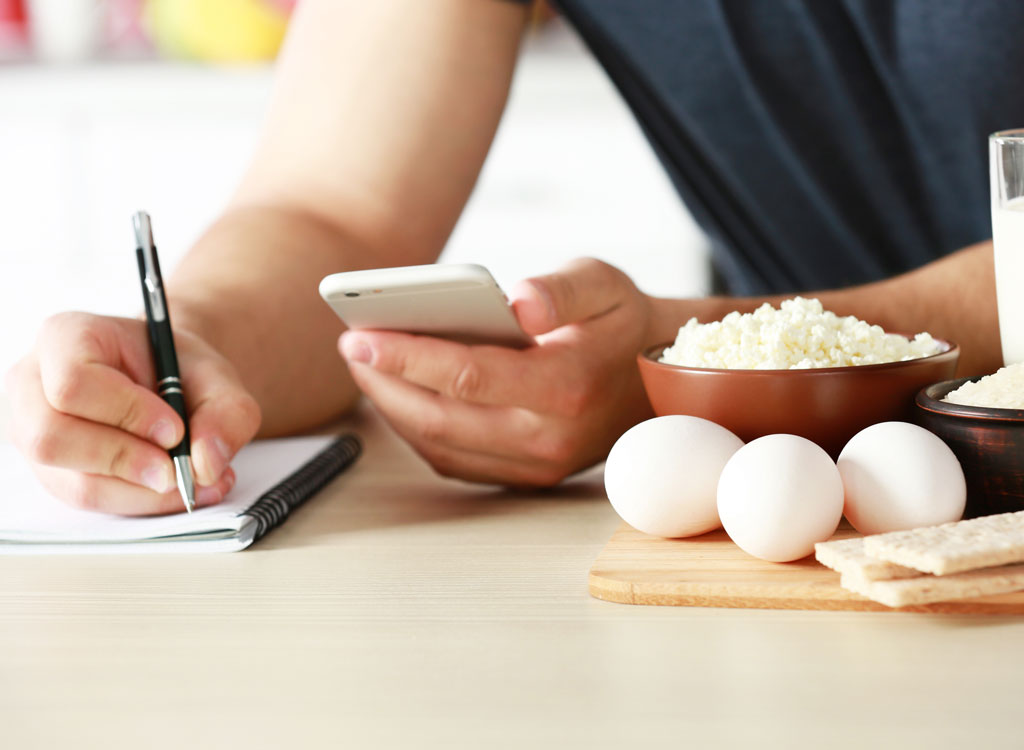
According to Twitter, the desire to “unplug” from technology ranked as one of the top 10 most shared New Year’s resolutions—right up there with working out and losing weight. But don’t hurl your smartphone out the window just yet. Using technology in the right way, researchers say, could actually help you reach your slim down goals, making your weight loss journey easier, more enjoyable and more successful.
Flash Diet
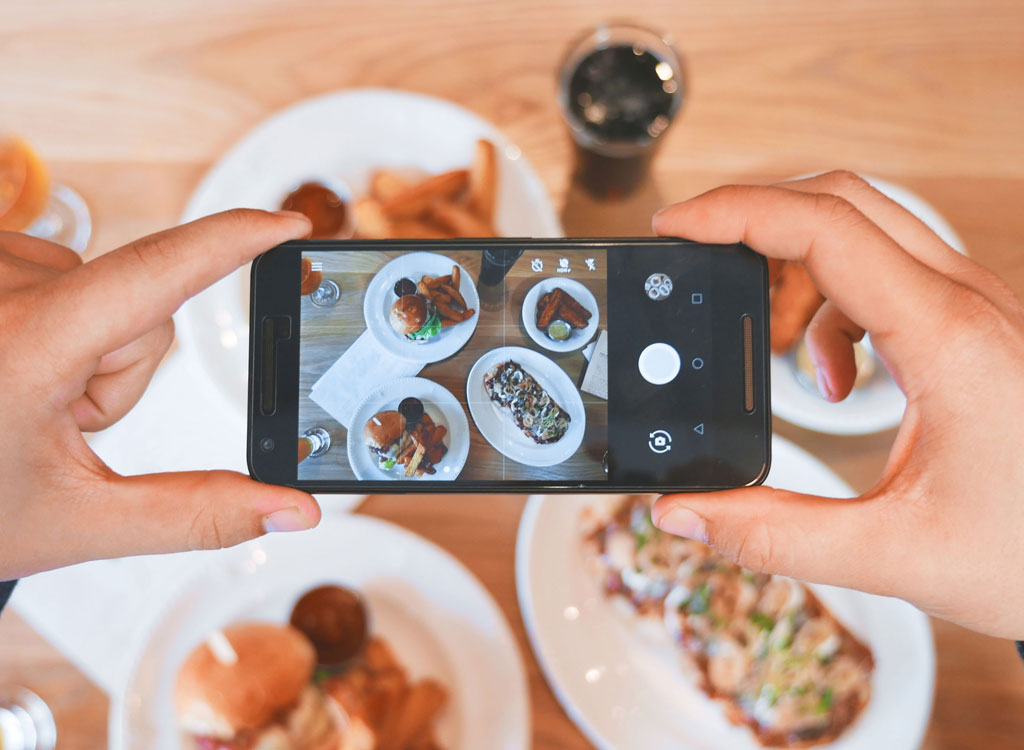
But first, let me take a selfie—of dinner, that is. Turns out snapping photos of your meals before eating them can snap you out of a poor food decision, according to a study published in the International Journal of Consumer Studies. Researchers had study participants keep a traditional, on-paper food diary for a week and then keep a more modern record, taking photos of their meals and snacks with disposable cameras. The feedback was unanimous: everyone reported that the act of taking the photos–and the photos themselves–made them more mindful eaters in a way that the paper diaries didn’t. People often record what they eat after they eat it, the study noted. With photo food diaries, you have to snap the picture before you eat—and that action can snap you out of an unhealthy choice. In fact, many study participants reported changing or adjusting their choices based on the photos alone. Disposable cameras are a bit passé, but you can easily try the flash diet with your smartphone. Lights, camera, slim-down!
Skinny Texts

Some text messages can make you laugh (lol, autocorrect!). Some can give you a complex (so what did he mean when he said ‘ilu’). And others, researchers say, can help you make better food choices and lose weight. A study published in the Journal of Nutrition and Behavior showed that college students who received regular text “nudges” to their smartphones, along with a short video reminding them of their targeted goals ate more fruits and vegetables and also engaged in slightly more rigorous physical activity than those who didn’t receive the texts. A second study published in Health Promotion Practice found similar results: dieters were more apt to stay on track when they received weekly, motivational text reminders of their daily “calorie budget.” So solicit a text buddy to be your weight-loss coach, or take matters into your own hands; set up labeled alarms on your smartphone, so when 6 a.m. rolls around, it’s: U make 1,300 cals-a-day look so gd! Go crush ur gym wo!
Rise and Shine
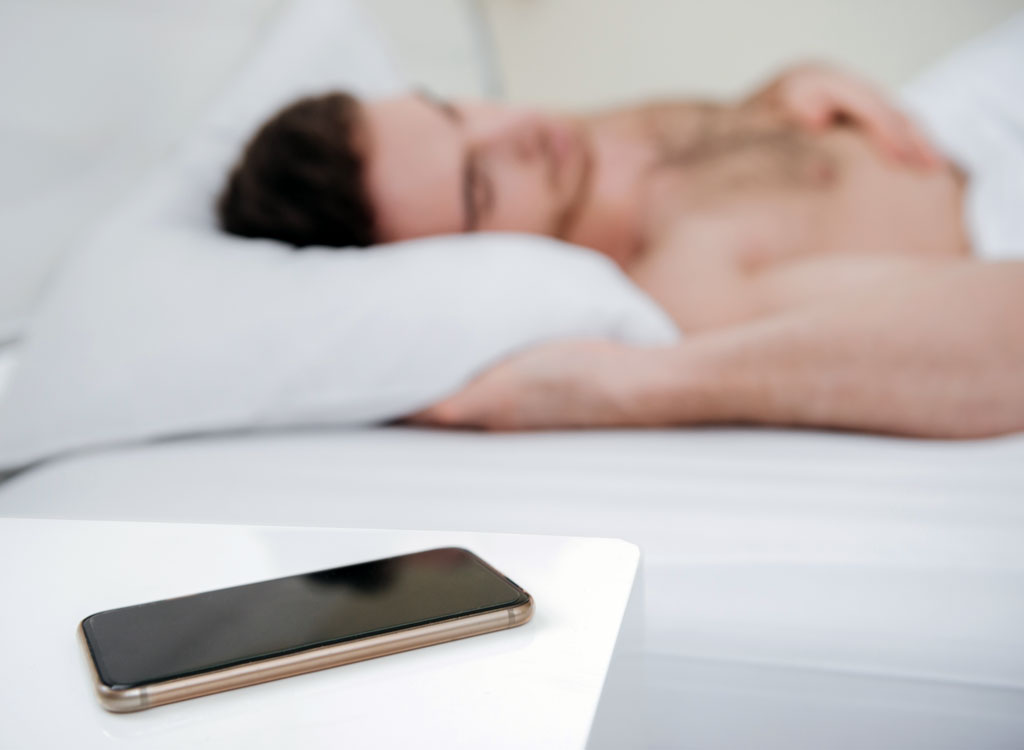
Psst, Sleeping Beauty: Prince Phillip is running a little late, so we’ve set your smartphone’s alarm clock to 7 a.m. Researchers say it’ll help you eat less cake at the ball and slim down. Or so says a recent study from Northwestern Medicine that found late sleepers—those who woke at about 10:45 a.m.—consumed 248 more calories a day, ate half as many fruits and vegetables and twice the fast food of those who set the alarm clock earlier. A second study by researchers from the Roehampton University found that “morning people” — those who leap out of bed at 6:58 a.m., were generally healthier, thinner and happier than the night owls, who start their day at 8:54 a.m. So coax yourself into being a morning person by gradually setting your smartphone’s alarm clock 15 minutes earlier, and wake up to a slimmer you. Prince Philip looked like a lousy kisser anyway.
Dear Diary
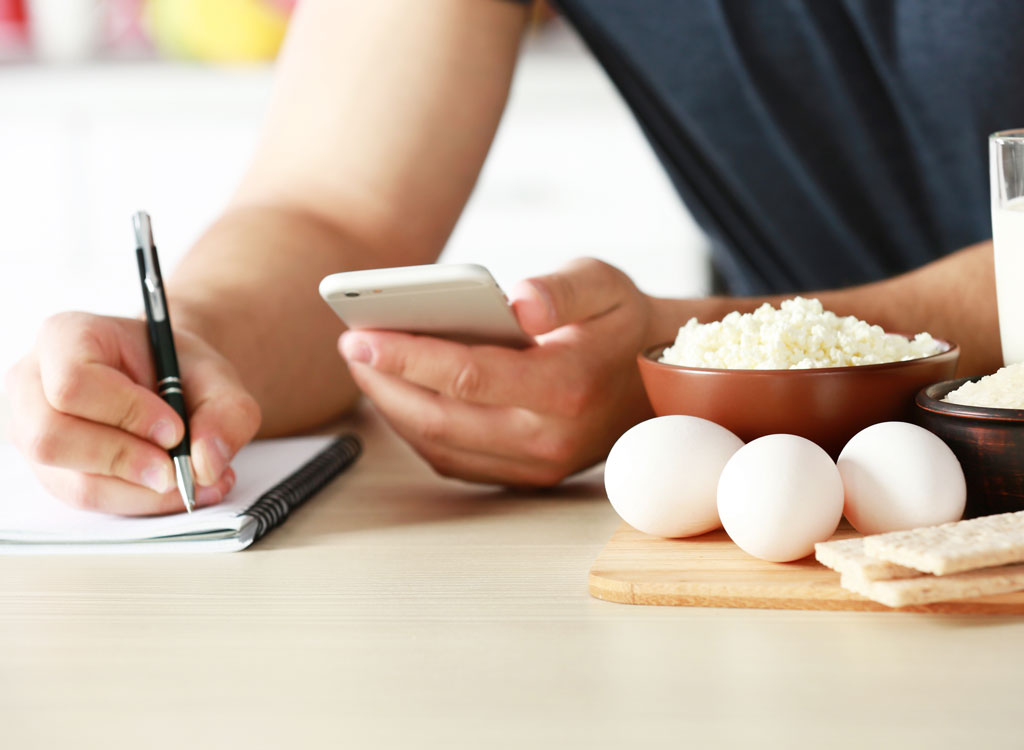
Want to double the amount of weight you’ll lose next month? There’s an app for that. Researchers say you can double the amount of weight you lose just by keeping a food journal—if you use your smartphone to record your eats. A study in the American Journal of Preventive Medicine found the more food records dieters kept over the course of 30 months, the more weight they lost; and those who kept daily food records lost twice as much weight as those who didn’t journal. And a second study in Journal of Nutrition & Behavior found digital tracking was more effective than traditional paper diaries—a finding similar to the flash diet (see tip #1). Dieters who used pen-and-paper to record their intake missed twice as many days as compared with those who used the diet tracker app Lose It!. Authors of both studies say the simple act of recording what you eat raises awareness about food choices, and the less burdensome the task, the more likely you are to comply. MyFitnessPal is another popular free nutrition tracker app, as well as SparkPeople, FatSecret and Calorific.
Pep Talk
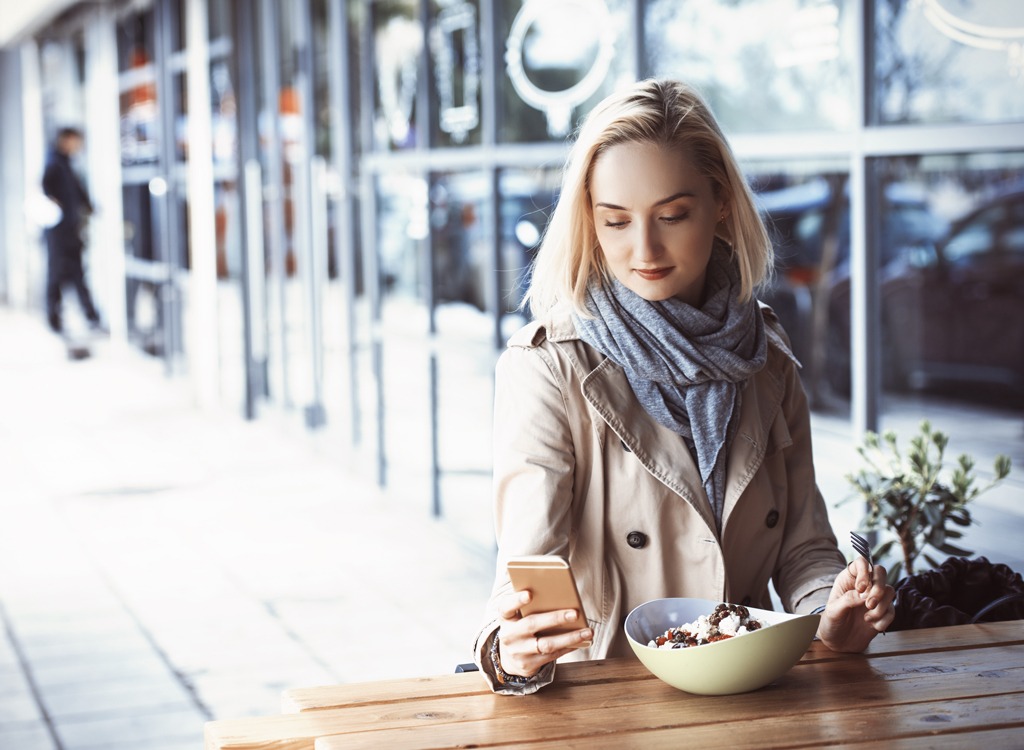
Your hand is in the cookie jar, and you’re about to go to town on a sleeve of Oreo’s. Stop! You can damage control this scenario: Call Mom! Call bae! Or call your bff! Researchers say simply the sound of a loved one’s voice can trigger the release of oxytocin, a hormone naturally released during times of bonding that helps regulate food intake and can suppress the appetite. According to a study in the journal Aging, daily injections of oxytocin, also known as “the love hormone,” reduced the number of food animals consumed, as well as decreased abdominal fat and body weight during, and for nine days following the 17-day treatment. And the better news is you don’t need shots to trigger a boost. A recent study showed the sound of a mother’s verbal reassurances caused oxytocin to rise and cortisol—the stress hormone—to drop at the same rate as physical hugs and kisses, among a group of young girls exposed to a stressful situation (they were asked to individually give a talk to a panel of judges—yikes!). According to researchers, oxytocin seems to put a cap on how high-stress hormones can go, which is a good thing for your waistline, as elevated cortisol can increase your appetite, mess with blood sugar levels and cause weight gain. Fend of a snack-attack with your smartphone. (Just don’t call mom if she’ll stress you out more).
Jam Sesh
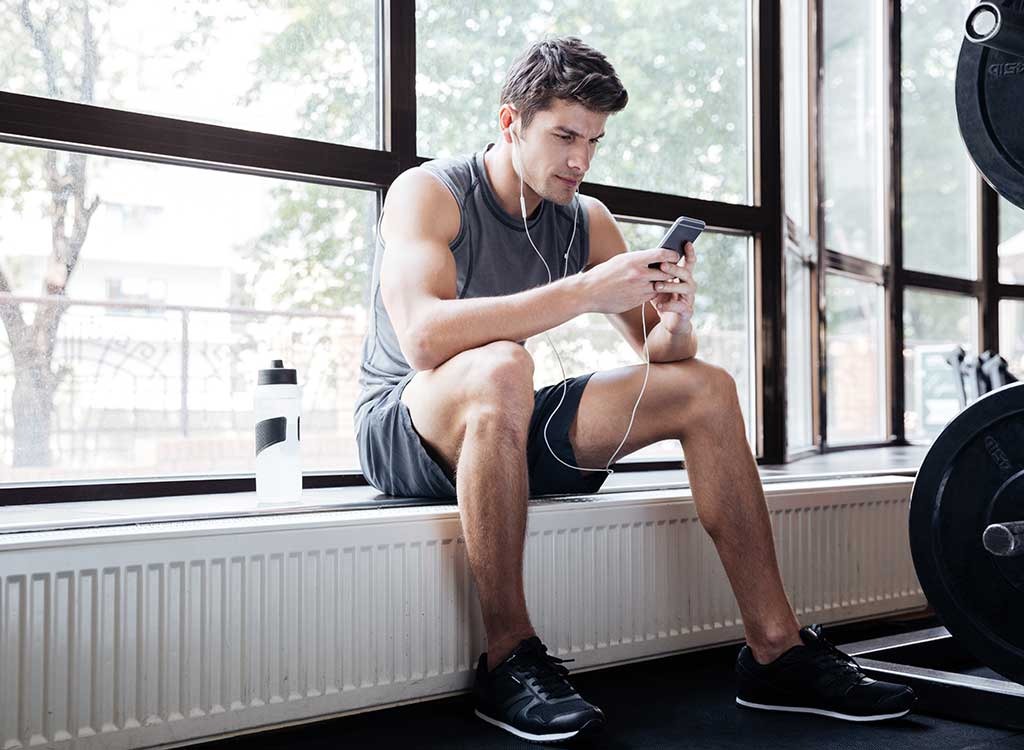
The dread you feel when you arrive at the gym and realize you’ve forgotten your music isn’t made up. In fact, research suggests your workout will suck approximately 15 percent more than usual. That’s because music can help boost endurance and keep your spirits up when you’d otherwise throw in the towel, according to a study in Journal of Sport & Exercise Psychology. For the study, researchers asked participants to run on a treadmill and keep in strict time with the beat of “motivational rock or pop music,” including tracks by Queen, the Red Hot Chilli Peppers, and Madonna. The results? Listening to upbeat music kept people running 15 percent longer and helped them feel more positive about the task—even when working out at a high intensity close to exhaustion. So put together a playlist of your favorite iTunes and make a habit of putting your smartphone by your keys before you change into your gym gear. And your headphones, too!